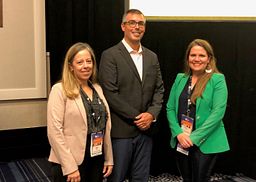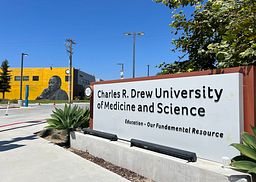Announcing the 2019–2020 Faculty-Generated Research Grant Awardee
Each year, PAEA selects an outstanding researcher to receive the prestigious Faculty-Generated Research Grant, which provides $50,000 in funding for an ambitious research project that has the potential to significantly expand the body of knowledge on PA education or the profession.
PAEA is thrilled to announce Carolyn Bradley-Guidry, DrPH, PA-C, BSN, associate professor at the University of Texas Southwestern Medical Center, as the 2019–2020 PAEA Faculty-Generated Research Grant awardee for the project What’s Working? A National Assessment of Best Practices in Diversifying the Physician Assistant Workforce. As principal investigator, she is joined by co-principal investigator Gerald Kayingo, PhD, PA-C, associate professor at the UC Davis Betty Irene Moore School of Nursing, and co-investigators:
- Vanessa Bester, EdD, PA-C, assistant professor at Augsburg University and 2019-2020 AAPA-PAEA Research Fellow
- Sumihiro Suzuki, PhD, MS, associate professor at the University of North Texas Health Science Center
- Ramona Dorough, instructor at the University of Texas Southwestern Medical Center
Bradley-Guidry’s proposal was selected after a highly competitive blinded review process, led by members of the PAEA Grants & Scholarship Review Committee. Research teams across the country submitted letters of intent, providing a brief overview of their proposed research projects. Following peer review, a select few were invited to submit a full proposal for a final round of review. From this pool, Bradley-Guidry’s project stood out. Using a mixed-methods design, she and her team seek to address two aims. The first is to identify which PA programs are considered top performers in contributing to ethnic and racially diverse graduates to the PA workforce. The second qualitative arm of the study focuses on the characteristics and strategies these top-performing programs attribute their success in graduating diverse PA students to.
The health care environment and our country’s demographics are in constant flux. Because of this, Bradley-Guidry and her team of researchers underscore the critical need for diversifying the health care workforce. One goal of increasing diversity in PA education is fostering cognitive diversity in the workforce. According to Bradley-Guidry, rich differences in experiences, knowledge, and beliefs may create “a robust learning and clinical environment for both trainees and clinicians,” while “increasing the capacity of cognitive resources of the team.” In order to do this, programs must use best practices to build cohorts comprised of students from all types of backgrounds, bringing a wealth of diverse experiences and perspectives. Student diversity encompasses a myriad of factors such as sex, sexual orientation and gender identity, race, ethnicity, nationality, religion, age, cultural background, socio-economic status, disability, and language. According toBradley-Guidry, “deciding which aspect of diversity to focus on was the most challenging part of designing the study.” However, the researchers resolved to specifically focus on racial and ethnic diversity, after recognizing that demographic diversity is “lagging behind in the PA profession.”
The project calls attention to the shortage of resources currently available to programs to measure diversity and inclusion. “We hope to provide resources to aid PA programs in actualizing their diversity missions, create inclusive environments, and enhance educational excellence for the students and faculty,” said Bradley-Guidry.
To read more from our interview with Bradley-Guidry, click here.
The PAEA Research Team would also like to recognize the Grants & Scholarship Review Committee and its chair, Trenton Honda, PhD, MMS, PA-C, for their hard work and expert opinions during the review and selection process. The reviewers were extremely impressed by the quality scholarly work and potential impact anticipated to result from this project. Congratulations to Carolyn, and her team!
Click here for more information about the PAEA Faculty-Generated Research Grant, or contact research@PAEAonline.org to learn more about our other research resources and funding opportunities.




